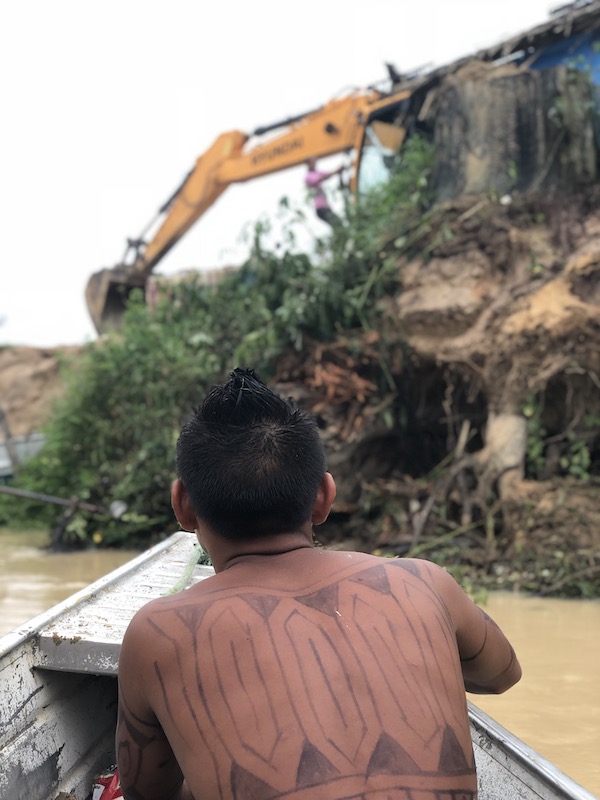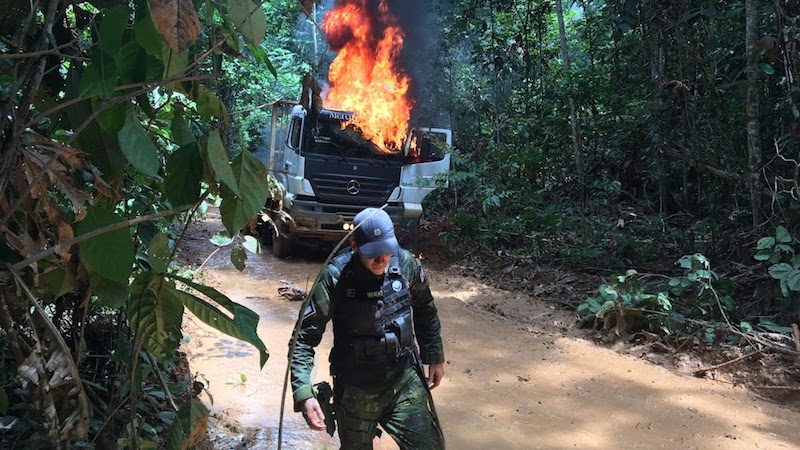The first speech by president Jair Bolsonaro on an international stage, on Tuesday at the World Economic Forum in Davos, Switzerland causes immense concern to Brazil’s indigenous peoples.
When Bolsonaro said Brazil has used very little of its land for agriculture and livestock (an estimated 9% and 20% of the national territory respectively), the president repeats a narrative that overstates indigenous control of land that was central to his election campaign, which has fuelled an alarming increase in violence in the Amazon and other rural areas of Brazil.
In less than a month since the president took office, several indigenous territories have been invaded by thugs hoping to take possession of forests that are still standing because the nation’s indigenous peoples have prevented their destruction. Brazil’s indigenous peoples have been vital in combating the causes and consequences of climate change.
Brazil’s natural resources open for business, Bolsonaro tells Davos
In his speech in Switzerland, Bolsonaro made clear that agribusiness and mining interests will be allowed to expand their boundaries.
What has not been said is that Bolsonaro has already removed staff and funding from the federal agencies responsible for the protection of the environment and for guaranteeing human rights in Brazil. He has weakened the ability of the National Indian Foundation (FUNAI) to do its job in advancing the demarcation and recognition of indigenous lands, and denied the agency a voice in the environmental licensing process required for any new projects introduced on indigenous lands, including some of the most remote and intact of the primary forests in the Amazon.
Now, these roles are in the hands of the ministry of agriculture, whose new minister emerged from a group of legislators in congress that is intent on expanding agro-industrial activities and mining on the lands of indigenous peoples and other protected areas. Under this administration, the fox will indeed be guarding the henhouse.

(Photo: Fabiano Maisonnave)
It is worth remembering that these changes happen in a country that, between 1985 and 2015, had lost more than 70 million hectares of native vegetation cover, territory that is twice the size of Germany. Dozens of countries have forest cover that is proportionately larger than that of Brazil, including countries with well-developed economies, including Japan, Sweden, Finland and South Korea. Between 2002 and 2012, Brazil’s agricultural production rose markedly in the same period that the government recognized indigenous lands and deforestation fell; the goals are not incompatible.
Brazil has 259 million hectares of protected areas in lands recognised as conservation units and indigenous territories, representing a quarter of the area of Brazil. This is equal to that of France (26%) and less than that of Germany (38%), Japan (29%) and the United Kingdom (29%). In South America several countries including Peru, Ecuador and Colombia have set aside more than 40% of their national territory as protected areas.
The president’s speech only reinforces the terrible fate already confronting the environmental and extractive reserves and the indigenous lands and the descendants of escaped slave communities. Throughout Brazil, we are battling deforestation and the destruction of our rivers, precious biodiversity and the traditional knowledge that offers humanity yet unknown benefits – but only as long as we remain linked to our traditional territories.
The president failed to mention in Davos the actions his administration has taken already, which indicate far better than his speech exactly how his policies will impact the environment and our peoples.
By seeking to please the investment community and agribusiness and mining interests, the speech Bolsonaro gave in Davos and his intentions for our lands promise to increase the anguish of traditional peoples, affecting not only our future, but the future of the entire planet.
Dinamam Tuxá is executive coordinator of the Articulation of the Indigenous Peoples of Brazil (Apib)
